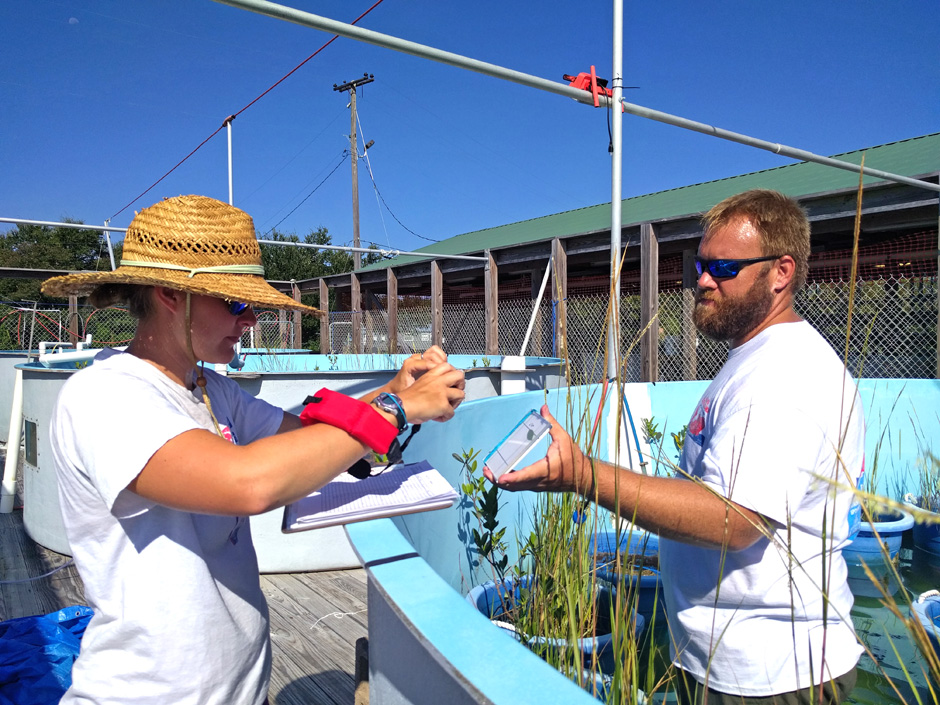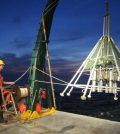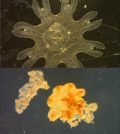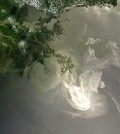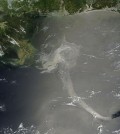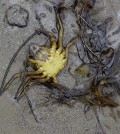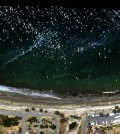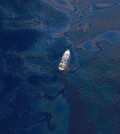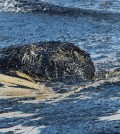Posts for tag "oil"
Exploring the Link between Biodiversity and Species’ Recovery After Oil Spills in the Gulf of Mexico
The ACER study utilized many types of data to explore the relationship between biodiversity and resilience for Gulf Coast flora and fauna following the Deepwater Horizon disaster. Biodiversity study subjects were from a wide range and included...
- Posted September 3, 2019
Oil Biodegradation Slower in Darker, Colder Waters
Research into the speed of oil biodegradation under deep water conditions shows that darker, deeper waters slow oil degradation and microbial activity.
- Posted October 10, 2018
Cleaning Up Possible Straits Of Mackinac Oil Spill Estimated At $1 Billion
The cost for cleaning up a winter time oil spill in the Straits of Mackinac could cost up to $1 billion dollars, according to mlive.com. The Straits is home to an oil pipeline operated by Enbridge Inc....
- Posted June 8, 2016
Soil, Water Contamination In North Dakota From Fracking Spills
Duke University scientists find water and soil contamination caused by wastewater spills from hydraulic fracturing in the Bakken region of North Dakota.
- Posted May 12, 2016
Global Uptick In Ethane Owed To U.S. Oil Field
For many years, global levels of ethane have been going down. But that seemed to change after a sensor in the European Alps registered an uptick in ethane back in 2010. Stumped, scientists began to investigate what...
- Posted May 6, 2016
Oil And Dispersant Combo Found Harmful To Jellyfish
Scientists learned a lot from the Deepwater Horizon oil spill, both directly after the blowout and through the years that have passed since. In a recent example of yet another discovery made from the disaster, researchers at...
- Posted May 2, 2016
After Deepwater Horizon, Oil Dispersants Limited Natural Hydrocarbon Consumers
A study led by scientists at the University of Georgia finds that dispersants used after the Deepwater Horizon disaster limited natural oil-eating microbes.
- Posted November 13, 2015
Biofilms On Ballast Tank Walls Present Challenge In Great Lakes Invasives Fight
Creative methods and gear aid a study of biofilms on the walls of ship ballast tanks and the risk they pose for harboring Great Lakes invasives.
- Posted August 24, 2015
Scientist: Studying Deepwater Horizon Effects Difficult Due To Lacking Baseline Data
In a press release from the University of Georgia, a professor lays out some ways in which studying the Deepwater Horizon oil spill and other disasters impacting the environment is currently difficult due to a lack of...
- Posted August 13, 2015
NOAA’s CAFE Database Determines Fates Of Toxic Chemical Spills, Ecosystem Impacts
NOAA's Chemical Aquatic Fate and Effects database provides information on more than 35,000 toxic materials and can help determine impacts of spills.
- Posted July 30, 2015
NASA Tech Helped Refugio Oil Spill Response
As a result of the Plains All American Pipeline spill on May 19, about 21,000 gallons of oil leaked into the Pacific Ocean and nearly 101,000 landed on Refugio State Beach, according to LiveScience. Since that time,...
- Posted July 17, 2015
Scientists Say U.S. Oil Spills More Common Than Thought
According to a press release from ECOreport appearing in the Environmental News Network, oil spills in the United States have been significantly underreported. Researchers with the Center for Biological Diversity note about 8,000 incidents between 1986 and...
- Posted July 6, 2015
Scientists monitoring around Refugio Oil Spill
Following the rupture of an oil pipeline north of California’s Refugio State Beach, scientists with the University of California, Santa Barbara, are monitoring its effects, according to a release. The oil spill sent tens of thousands of...
- Posted June 2, 2015
Potential ‘missing oil’ from Deepwater Horizon spill found
Scientists have located as much as 10 million gallons of the missing oil from the 2010 Deepwater Horizon spill, according to an article from Live Science. To locate the oil, the Florida State University research team took...
- Posted February 10, 2015


